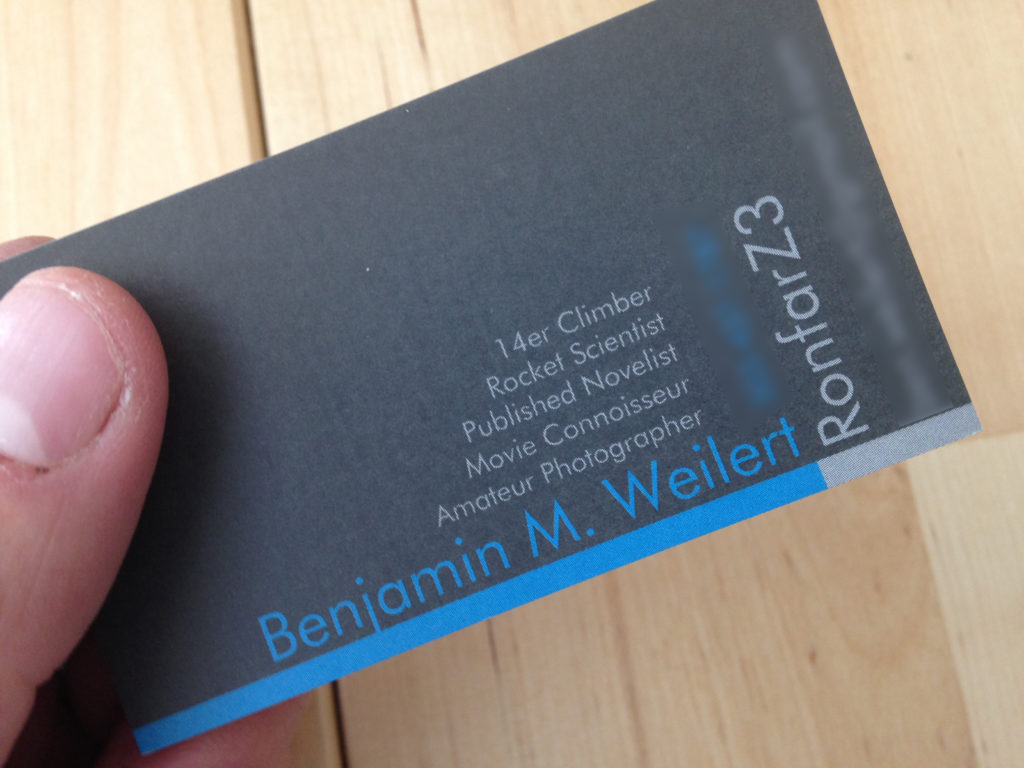Has this ever happened to you?
You’ve just been introduced to someone you’ve never met before and, after almost instantaneously forgetting their name, you ask, “So, what do you do for a living?” This question, along with a few other antiquated ones like “Are you married?” or “Have any kids?” don’t really provide any insight into the life of the person you’ve just met. They only touch on the surface of their life, and sometimes that surface may be uncomfortable for them to answer. They may have just been fired from their job, are going on their 6th month of unemployment, are frustrated with being single, have just gotten divorced, or are having fertility issues with their spouse. As you can see, these questions will often receive lies for answers because they can probe a little too deep for a new acquaintance. I’d almost equate them with the three “no-no’s” of small talk: money, religion, and politics.
Even if everything is going great in their lives, it’s likely these questions won’t tell you anything unique about them. This is probably why that person you just met doesn’t really stand out in your mind and you’ll spend the next six times you meet them asking the same questions in order to give them an identity you can remember. But what if we move past these questions? I mean, what is the point of asking where someone works, or about their family life? Do we want to know these things so we can compare ourselves against this new acquaintance? Do we feel smug if we’re better off? Do we get depressed when we learn they’re doing better than we are? In the end, these questions don’t accomplish anything and often leave us with no meaningful information about this new person.
Who else thinks it’s time for a paradigm shift?
On a personal level, I don’t like being asked what I do for work because most of it is inherently classified. Of the information I do provide, it’s often annoying to always be answering the same, follow-up questions. No, I’m not a contractor. No, I’ve never served in the military before. No, I’m not part of the military now. The real kicker comes in the fact that I’d much rather talk about my passions instead of what I do for money during the week. On my personal business card, of the five descriptors I’ve given myself, four of them have nothing to do with my job. I could talk for hours about any one of them, but if you ask me about my job, it’s 15 seconds then a “even if I did tell you, I’d have to kill you” line. Inherently, even if I were able to explain what I do for a living, very few will remember it because it’s pretty banal.
That being said, if I were to be asked, “What are your passions?” I could go on to tell them about how I enjoy climbing Colorado’s 14,000 ft. peaks, how I’m an amateur photographer trying to become more professional, how I’ve published several novels with plans to publish many more, or how I have become a connoisseur of movies. Any one of those would be more memorable than hearing that I work in a cubicle at a desk all week answering e-mails and making phone calls. Everyone does that; it’s not unique.

It’s time to focus on the “side hustle.”
Perhaps this is inherently due to the nature of millennials (of which I suppose I could classify myself). Most millennials have been hired into jobs they don’t particularly care for, are not in their area of interest, or are well beneath their earning potential. As a result (or perhaps in part), most millennials will have something else they do during their free time and on weekends. These “side hustles” don’t always earn them enough money (if any at all) to quit their day job, but it’s what they are truly passionate about. It’s these projects that give millennials their individuality. I would even argue that it’s not even a millennial construct. Our parents and grandparents have had hobbies and passions aside from their 9-to-5 jobs, but because their jobs were such a part of their identity, it’s what people would initially ask when they met for the first time.
I will admit that some people’s passions align with what they are paid to do for a living. These instances are admirable, but also equally rare. Considering how often I’d like to change the introductory question from my job to my passion, I’m still polite enough to provide a quick answer as I try to steer the conversation into something more personal and relevant. I’m sure most people would be shocked to be asked, “What is your passion?” the first time they meet someone, but perhaps if enough people start asking this question, the sudden shift in focus will help us all get to know each other better. In fact, if your passions align, you might have just found a new friend without having to wade through their job first.
This week, when you meet someone new, just try it out. Ask them what their passion is . . . you might be surprised what you learn!
